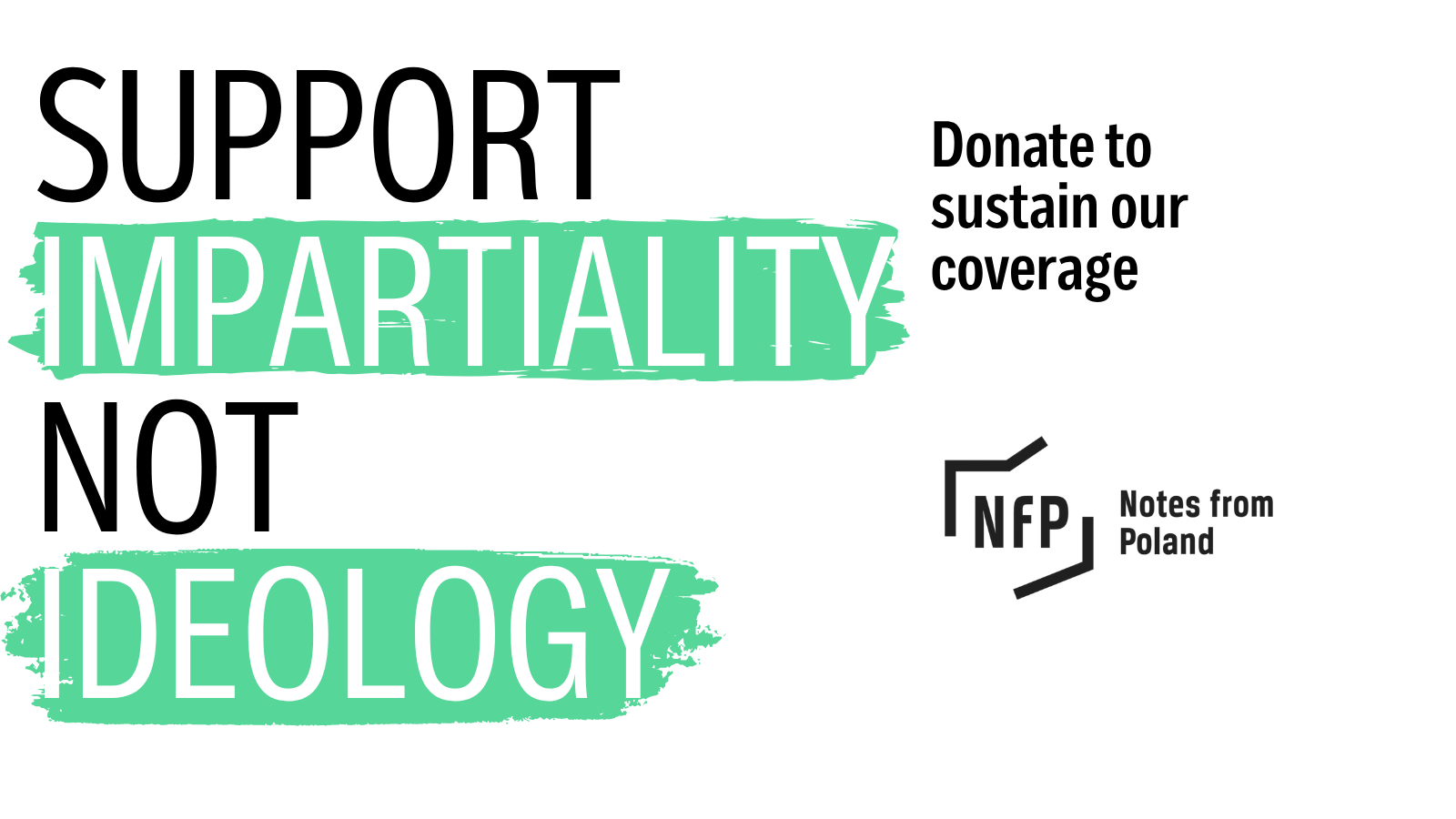Keep our news free from ads and paywalls by making a donation to support our work!

Notes from Poland is run by a small editorial team and is published by an independent, non-profit foundation that is funded through donations from our readers. We cannot do what we do without your support.
State research agency CBOS has found its highest-ever level of support in Poland for the introduction of civil partnerships for same-sex couples, with almost two thirds of Poles in favour. The findings come as the government finalises a bill intended to grant certain rights to same-sex partners.
In a poll commissioned by the Dziennik Gazeta Prawna daily, CBOS found that 62.1% of respondents support the introduction of same-sex civil partnerships. That is up from a figure of 52% recorded by CBOS last year. In 2011, when CBOS first asked the question, only 25% were in favour.
I żaden dziaders tego trendu już nie powstrzyma 😎
"(…) Wśród osób w wieku 18–24 lata za związkami, które miałyby zrównane prawa z małżeństwami, opowiada się ponad 52%.
Kolejne 26,6% jest za wprowadzeniem związków z ograniczonymi prawami."https://t.co/lLDAuRBYJ6 pic.twitter.com/h6xbkBnjQT— Lewica News (@Lewica_News) November 12, 2025
The latest poll found that 30.6% of those surveyed believe that same-sex civil partnerships should offer the same rights as marriage. A similar proportion, 31.5%, think that they should have more limited rights.
Support for introducing same-sex civil partnerships was strongest among the youngest cohort, with 78.6% of those aged 18-25 in favour. The lowest support was found among the oldest group, aged 65+. But even there, 49.7% were in favour and 47.7% against.
People with left-wing views (89.9%) were most strongly in favour, followed by centrists (83%). But only a minority of right-wing voters (38.4%) support the introduction of same-sex civil partnerships.
In December 2023, the European Court of Human Rights ruled that Poland’s lack of legal recognition and protection for same-sex couples violates their human rights. That same month, a new, more liberal coalition government came to power, with most of its constituent parties in favour of introducing civil partnerships.
A bill to that effect was presented last year, but it has failed to win the support of more conservative elements within the coalition. It would also almost certainly have faced a veto from the president at the time, Andrzej Duda, or his successor and current incumbent, Karol Nawrocki.
Last month, the ruling coalition presented a new bill that would not specifically introduce civil partnerships, but would allow unmarried partners, including same-sex couples, to sign an agreement granting them certain rights.
These would include exemptions from tax on inheritance and gifts between one another, the possibility to jointly file tax returns and the right to mutually access medical information, have joint property ownership and obtain leave from work to care for a partner. It does not include the right to adopt children or share custody.
Poland’s ruling coalition has presented a bill that would allow unmarried partners, including same-sex couples, to sign an agreement granting them certain rights.
The proposal is a compromise intended to be acceptable to both liberals and conservatives https://t.co/n7VqUnP6uq
— Notes from Poland 🇵🇱 (@notesfrompoland) October 17, 2025
It is intended as a compromise that will satisfy conservative elements in the coalition while also potentially being acceptable to Nawrocki, who is aligned with the right-wing opposition.
After the plans were unveiled, Nawrocki said that he would not sign any bill that “undermines the unique and constitutionally protected status of marriage” but that he was “open to discussion” about measures to “help people, regardless of their gender, relationships, or age, to manage certain matters”.
Katarzyna Kotula, a secretary of state in the prime minister’s office who is overseeing work on the proposal, told Dziennik Gazeta Prawna that “the government is putting the finishing touches to a bill ” and aims to submit it to parliament by the end of the year.
President Duda has not signed into law a government bill criminalising anti-LGBT+ hate speech.
Instead, he has sent it to the constitutional court for consideration, saying he has concerns it violates the right to free speech enshrined in the constitution https://t.co/jLHQvlCtup
— Notes from Poland 🇵🇱 (@notesfrompoland) April 17, 2025
Milosz Przepiórkowski, a strategic partnership officer at Kampania Przeciw Homofobii (Campaign Against Homophobia), one of Poland’s largest LGBT+ rights organisations, told Notes from Poland that he feels the government’s proposed solutions would help with some practicalities but do not go far enough.
“My husband and I…got married in Berlin, and it was wonderful because we were treated like any other couple. Then we returned to Poland, and we remain strangers to each other,” he says. “That is very sad for us, but it’s also very complicated when it comes to things like taxes or if one of us were hospitalised.”
The proposed bill would offer some “important legal solutions for us”, he says. “But symbolically, it means nothing. We are not regarded as partners, but as people of a lower sort. That may sound harsh, but it’s true.”
For the first time in six years, Poland is not ranked as the EU's worst country for LGBT+ people.
It is now second from last, having overtaken Romania in the latest annual Rainbow Map published by @ILGAEurope https://t.co/PtLdFtxL2L
— Notes from Poland 🇵🇱 (@notesfrompoland) May 16, 2025

Notes from Poland is run by a small editorial team and published by an independent, non-profit foundation that is funded through donations from our readers. We cannot do what we do without your support.
Main photo credit: Max Bashyrov/Flickr (under CC BY-NC 2.0)





















